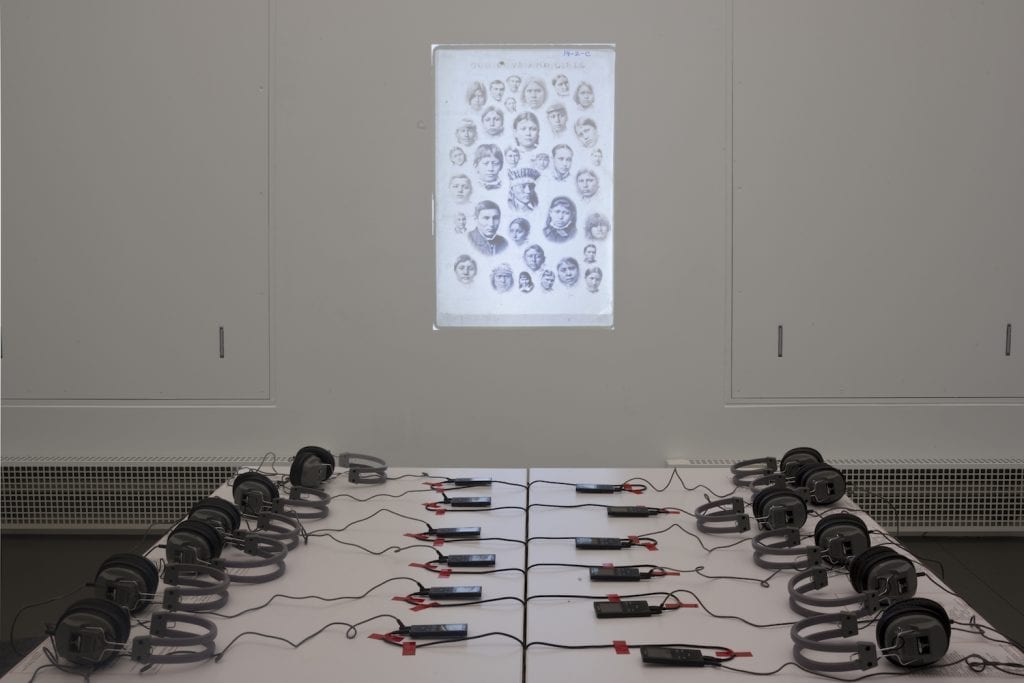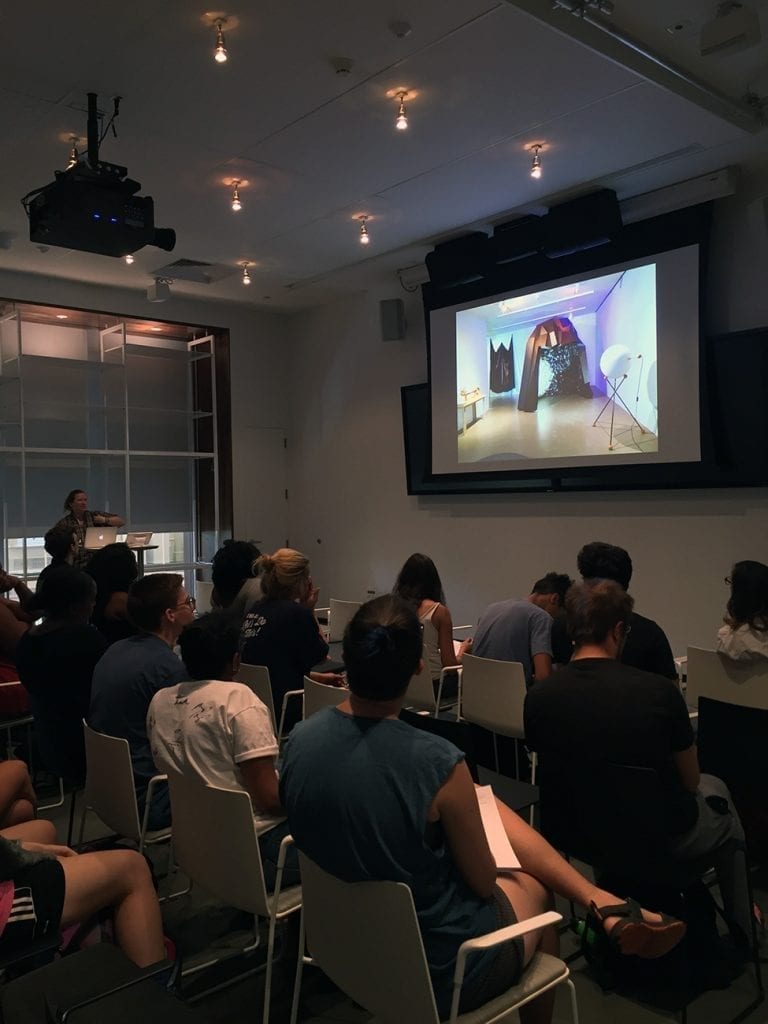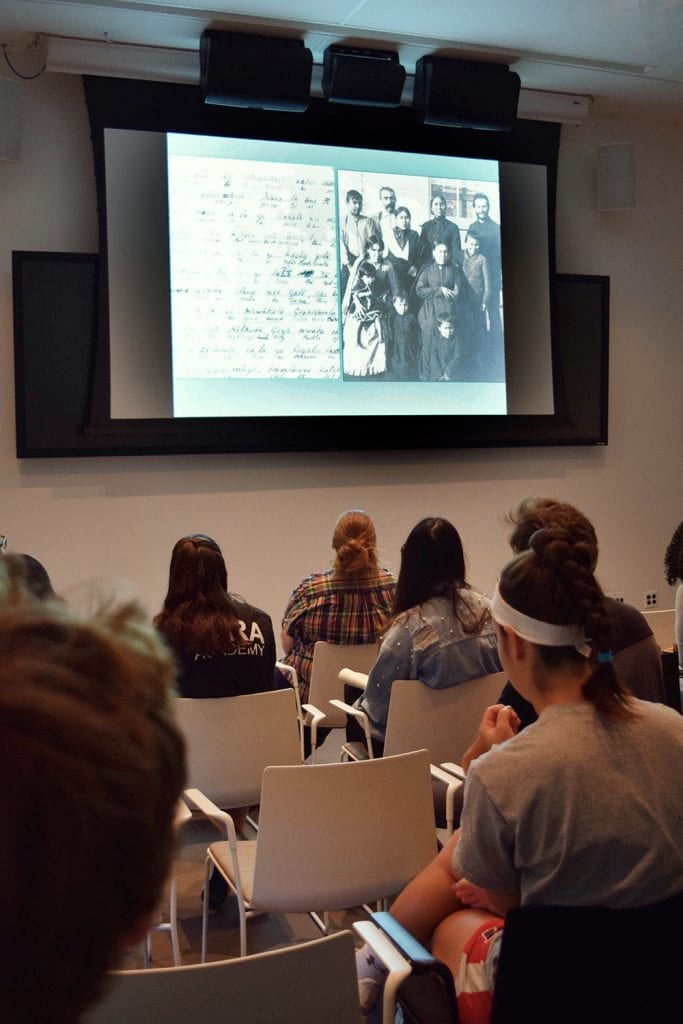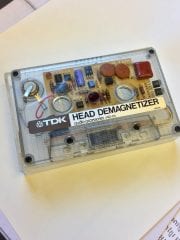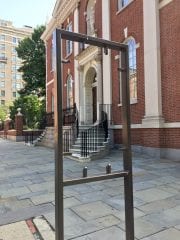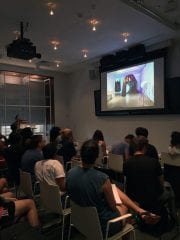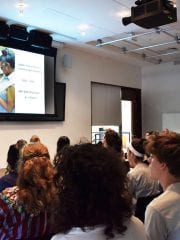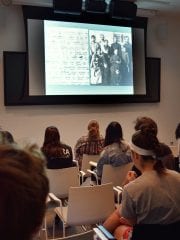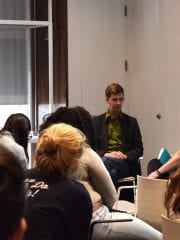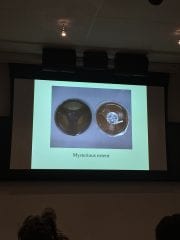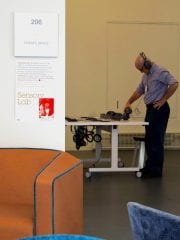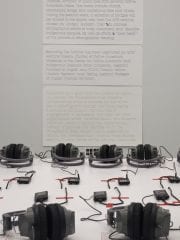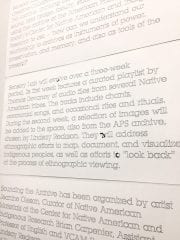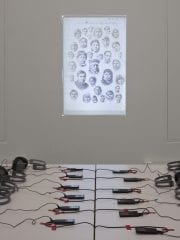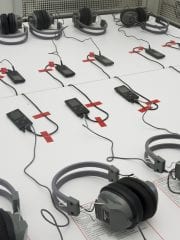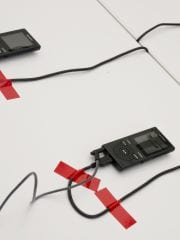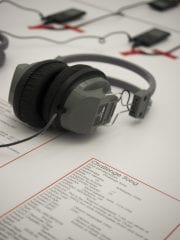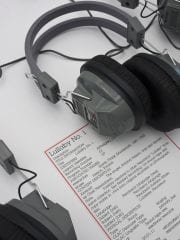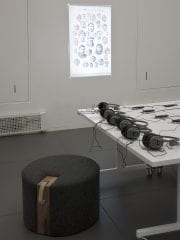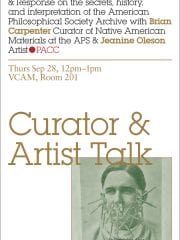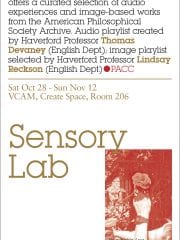Fall 2017
Introduction
Situated at the intersection of sound and image, this collaboration with the American Philosophical Society and artist Jeanine Oleson will explore indigeneity, recording, and collective memory at the APS’s Center for Native American and Indigenous Research. We’ll ask: how can we understand our relationship to archives as instruments of power, preservation, and memory, but also as tools of the present? How do photographic and sonic technologies shape the imagining of Native Americans, and how do Indigenous communities use these technologies—and the archives themselves—as tools for self-determination? And what might we gain by thinking across the boundaries of text, sound, and image as we approach these questions?
This project was active during Fall 2017. The planning for this project began a semester in advance, and follow-up extended past the active period.
Collaborators
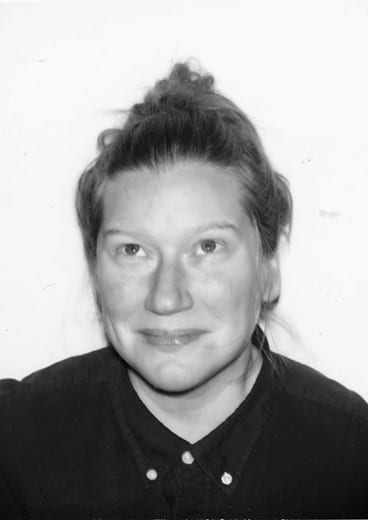 Lead Artist
Lead Artist
Jeanine is an interdisciplinary artist working with images, materiality and language, which she forms into complex and humorous objects, images, videos and performances. She attended the School of the Art Institute of Chicago (BFA 1995), Rutgers University (MFA 2000), and Skowhegan School of Painting and Sculpture (2000). Oleson is an Assistant Professor of Photography in the Department of Art, Media, and Technology at Parsons the New School for Design. She lives in Brooklyn, NY
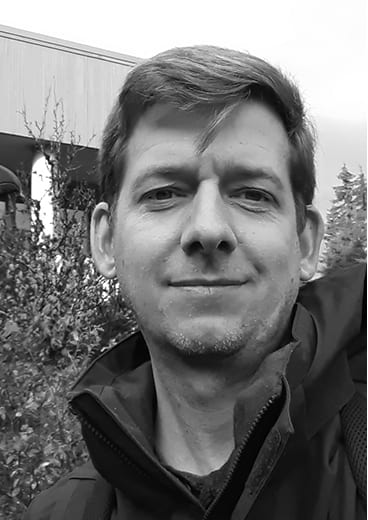 Curator of Native American Materials at the Center for Native American and Indigenous Research
Curator of Native American Materials at the Center for Native American and Indigenous Research
American Philosophical Society
The American Philosophical Society, the oldest learned society in the United States, was founded in 1743 by Benjamin Franklin for the purpose of “promoting useful knowledge.” In the 21st century the Society sustains this mission in three principal ways. It honors and engages distinguished scientists, humanists, social scientists, and leaders in civic and cultural affairs through elected membership and opportunities for interdisciplinary, intellectual fellowship, particularly in the semi-annual Meetings in Philadelphia. It supports research and discovery through grants and fellowships, lectures, publications, prizes, exhibitions, and public education. It serves scholars through a research library of manuscripts and other collections internationally recognized for their enduring historic value. The American Philosophical Society’s current activities reflect the founder’s spirit of inquiry, provide a forum for the free exchange of ideas, and convey the conviction of its members that intellectual inquiry and critical thought are inherently in the public interest.
Brian Carpenter is the Curator of Native American Materials at the APS Library & Museum. An archivist by training, he began working at the APS in 2008 on a six-year project to digitize and catalog all of the library’s 3000+ hours of audio recordings of Indigenous languages of the Americas. He has worked with over 80 Native communities throughout North America to enhance their access to archival materials at the APS and receive their guidance on ways to improve the representation and uses of the collections.
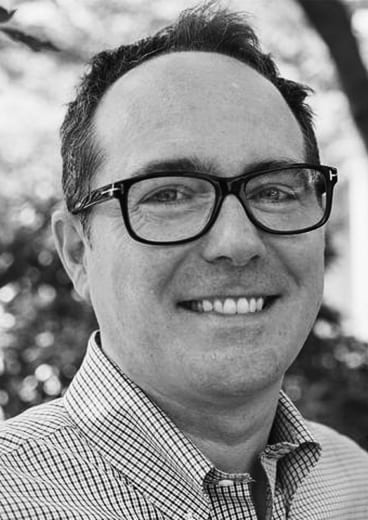 Visiting Assistant Professor of English
Visiting Assistant Professor of English
Haverford College
Thomas Devaney is a poet and 2014 Pew Fellow. Devaney is the author six books including Runaway Goat Cart (Hanging Loose Press, 2015), the solo-opera Calamity Jane (Furniture Press Books, 2014), The Picture that Remains with photographer Will Brown (The Print Center, 2014), and The American Pragmatist Fell in Love (Banshee Press, 1999). His work has appeared in The Philadelphia Inquirer, The Brooklyn Rail, Hyperallergic, and BOMB Magazine. Projects with the Institute of Contemporary Art,
include, “Tales from the 215,” for Zoe Strauss’s “Philadelphia Freedom” and “The Empty House,” at the Edgar Allan Poe House for The Big Nothing.” He lives in Philadelphia and teaches at Haverford College.
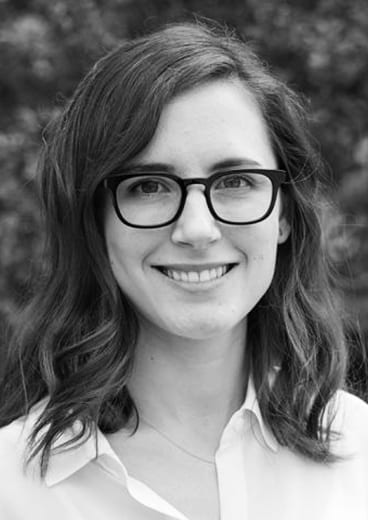 Assistant Professor of English, VCAM Faculty Fellow (2017-19)
Assistant Professor of English, VCAM Faculty Fellow (2017-19)
Haverford College
Lindsay Reckson is an Assistant Professor of English at Haverford College, where she teaches and writes at the intersection of American literary and cultural studies, performance studies, media studies, and religion. She is currently at work on two book projects. Her first, Realist Ecstasy: Religion, Race, and Performance in American Literature, examines the relationship between secularization and racialization in the post-Reconstruction period through a close examination of realism’s ecstatic bodies. The second, Experimental Gestures, explores how minimal or routine gestures—touching a button, saluting a flag, going through the motions–become crucial sites of ethical inquiry in times of attenuated political possibility. She is the editor of American Literature in Transition: The Long Nineteenth Century, Vol. 4 (1876-1910). Her essays have appeared in American Literature, Arizona Quarterly, American Religious Liberalism (ed. Schmidt and Promey), the Los Angeles Review of Books, Avidly, Material and Visual Cultures of Religion, The Pocket Instructor: Literature, and Keywords for American Cultural Studies. She received a 2016-2017 ACLS Fellowship for Realist Ecstasy, and currently serves as a 2017-2019 Visual Culture Arts and Media (VCAM) Faculty Fellow.
Events
American Philosophical Society, Non-Profit Partner
Meeting & Site Visit
7.19
American Philosophical Society, 104 S 5th St, Philadelphia, PA
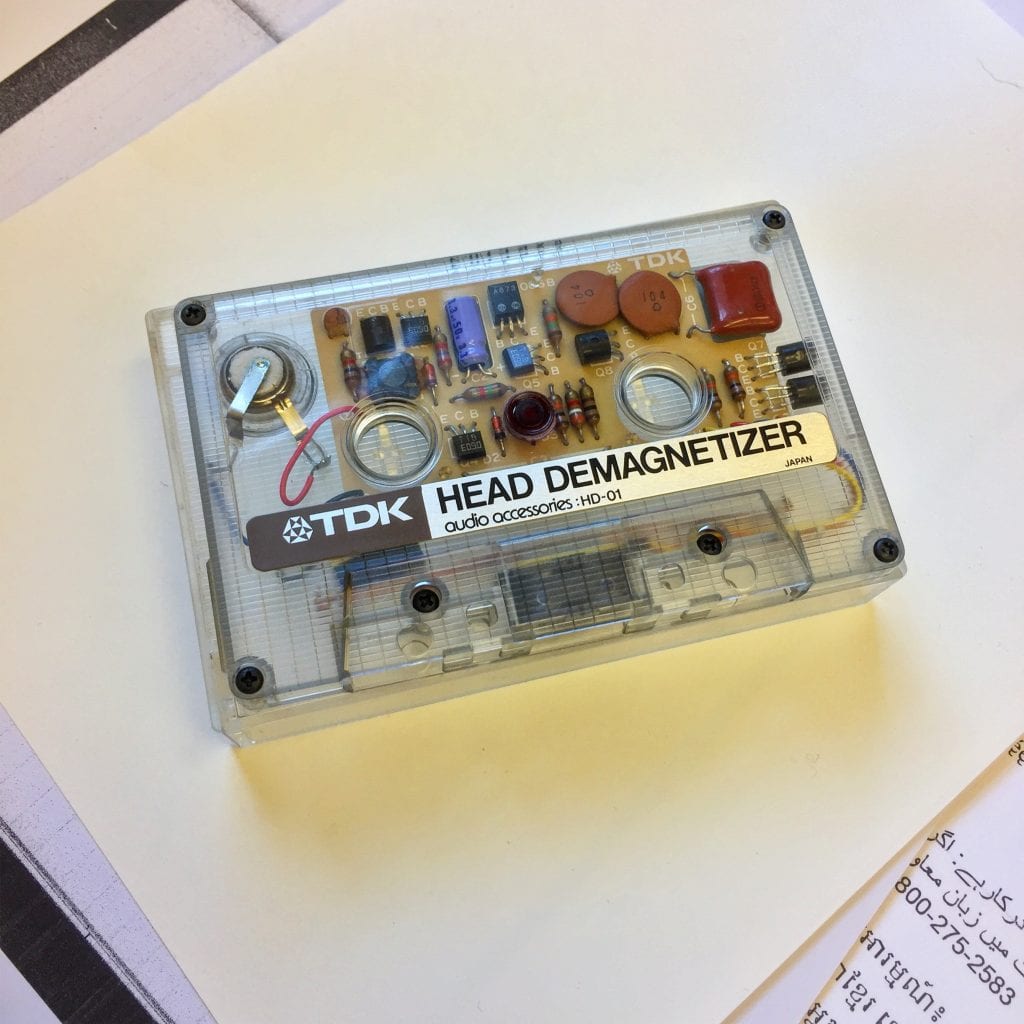
This was the first meeting of the entire collaborative team composed of members Brian Carpenter, Thomas Devaney, Stephanie Bursese, Lindsay Reckson, and Jeanine Olesen. Tom Devaney, Brian Carpenter and Stephanie Bursese gathered at the APS building – Lindsay and Jeanine joined by telephone. Brian Carpenter talked to us about how the APS archives function on a daily basis, how access is granted and what materials are in the process of being cataloged. This conversation also generated a few key questions about Indigenous representation inside the archive, individual bias in the process cataloging objects, and issues of access that are predicated on institutional affiliation.
Photo credit: Stephanie Bursese
American Philosophical Society: Brian Carpenter, Curator of Native American Materials at the Center for Native American and Indigenous Research
Non-Profit Partner
104 S 5th St, Philadelphia, PA
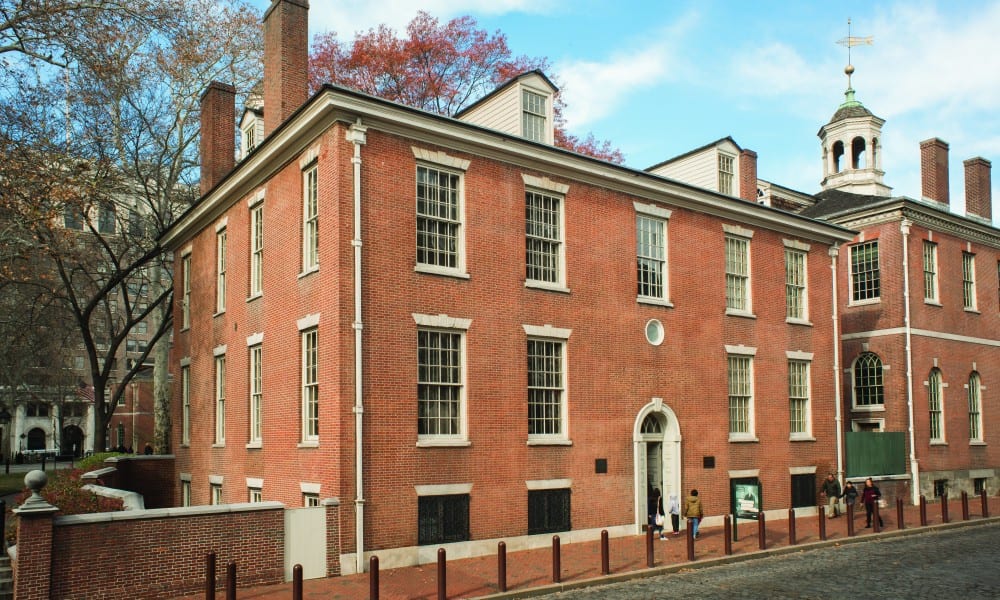
The American Philosophical Society, the oldest learned society in the United States, was founded in 1743 by Benjamin Franklin for the purpose of “promoting useful knowledge.” In the 21st century we sustain this mission in three principal ways. We honor and engage leading scholars, scientists, and professionals through elected membership and opportunities for interdisciplinary, intellectual fellowship, particularly in our semi-annual Meetings. We support research and discovery through grants and fellowships, lectures, publications, prizes, exhibitions, and public education. We serve scholars through a research library of manuscripts and other collections internationally recognized for their enduring historic value. The American Philosophical Society’s current activities reflect the founder’s spirit of inquiry, provide a forum for the free exchange of ideas, and convey our conviction that intellectual inquiry and critical thought are inherently in the best interest of the public.
Photo credit: Americal Philosophical Society/Brent Wahl
Jeanine Oleson, Lead Artist
Artist in Residence
Jeanine Oleson considers herself to be a “proud generalist.” She is an interdisciplinary artist working with images, materiality and language, which she forms into complex and humorous objects, images, videos and performances.
She attended the School of the Art Institute of Chicago, Rutgers University, and Skowhegan School of Painting and Sculpture. Since 2013, she has been a lead collaborator on a participatory project, “Photo Requests from Solitary” that provides images to people held in solitary confinement and supports advocacy efforts to end the practice in US prisons. Oleson teaches at Rutgers University and lives in Brooklyn, NY.
Photo Credit: Haverford College Communications
Video Credit: Jeanine Oleson; From “Figures of Speech”, part of a group exhibition “The Eccentrics” at SculptureCenter, which included 3D video, terracotta and copper speaker/mic, 3D print and performance (2016).
In the American Strain: Music in Writing 1855-1975 Course Visit w/ Jeanine Oleson, Lead Artist
Course Visit
9.27
9-10:30am, Woodside Cottage, Haverford College
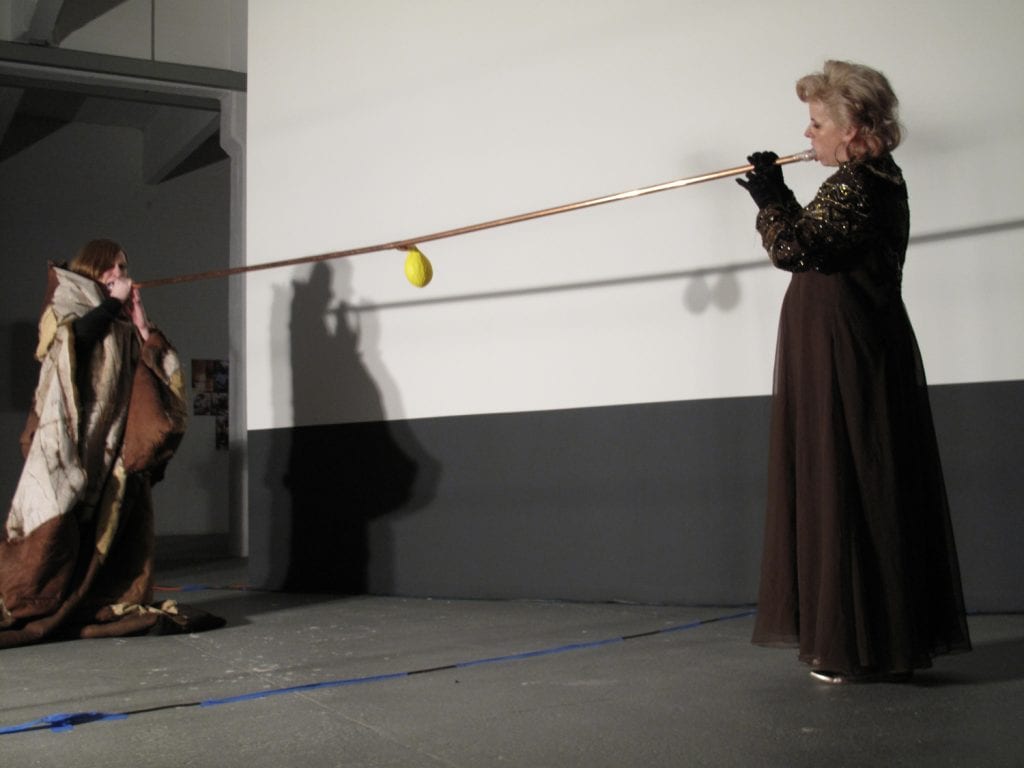
Artist Jeanine Oleson visited Tom Devaney’s course “In The American Strain: Music in Writing (1855-1975)”.
Oleson engaged the students in a series of interactive exercises working with the voice and breath when reading out loud. She discussed the connections between writing and music – she offered examples of how one might conjure a musical intonation with the voice when speaking.
She also discussed her creative process, a few of the concepts present in her most recent projects, and how some of those ideas connect with the larger collaborative PACC project.
Photo Credit: Courtesy of Jeanine Oleson; From Oleson’s project “What?” A performance at X Initiative with Juliana Snapper & Emma Hedditch on January 14, 2010 and at MOMA/PS1 with Juliana Snapper on April 10, 2010.
Realism, Race, and Photography Course Visit w/ Jeanine Oleson, Lead Artist
Course Visit
9.28
11:30-1pm, VCAM, Haverford College
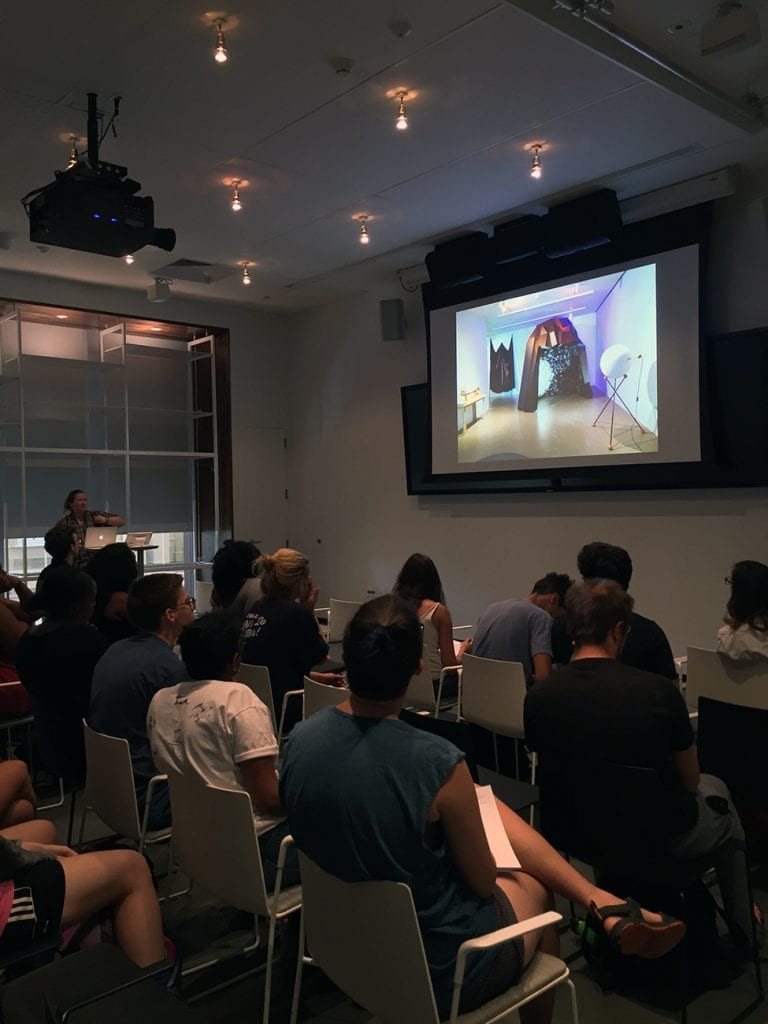
Artist Jeanine Oleson presented her project Photorequest from Solitary to Lindsay Reckson‘s students, and led a discussion around the work of this project.
Photo Requests from Solitary (PRFS) is a participatory project that invites men and women held in long-term solitary confinement in U.S. prisons to request a photograph of anything at all, real or imagined, and then finds a volunteer to make the image. The astonishing range of requests, taken together, provide an archive of the hopes, memories, and interests of people who live in extreme isolation.
On any given day, at least 80,000 people are held in solitary in the United States prisons and jails, either in supermax or other segregation units. Some will remain for months, years, or even decades in conditions that have been shown to cause deep and lasting psychological and physiological harm.
They spend at least 22 hours a day in a cell that measures on average of 6 x 9 feet, either in supermax prisons or in segregation units in other prisons and jails. Meals usually come through slots in the solid steel doors of their cells, as do any communications with prison staff. Exercise is usually alone, in a cage or concrete pen, for no more than one hour a day. People in solitary may be denied contact visits, telephone calls, television, reading materials, and art supplies.
Photo Credit: Stephanie Bursese
Curator & Artist Talk w/ Brian Carpenter, Curator, American Philosophical Society & Jeanine Oleson, Lead Artist
Curator & Artist Talk
9.28
12–1pm, VCAM, Haverford College
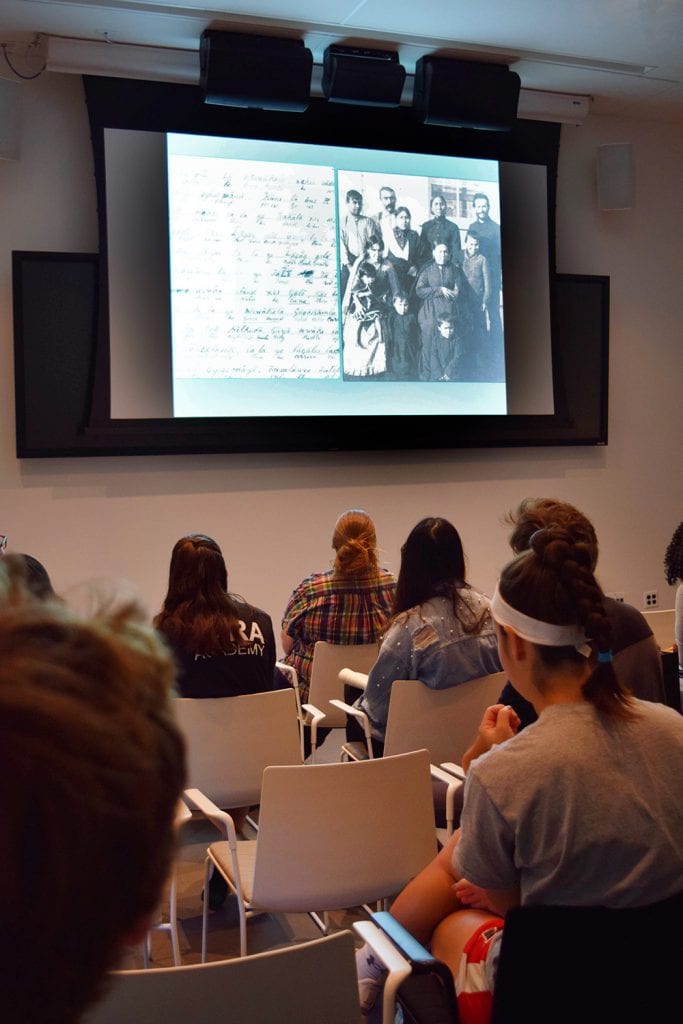
An artist talk and response on the secrets, history, and interpretation of the American Philosophical Society Archive with Brian Carpenter, Curator of Native American Materials at the Center for Native American and Indigenous Research & Jeanine Oleson, Artist.
Using photographs from the APS Archive of Indigenous figures from the 1800s, Brian Carpenter illustrated how the perspectives and biases of individual archivists deeply affect how materials are labeled and cataloged. He unpacked the complexities of this process, noting that many of the indigenous items in the APS collection were gifted as collections that were “owned” by non-indigenous people.
Carpenter presented his ongoing work with numerous Indigenous Tribal Leaders to de-accession these items and return them to the tribes as well as to accurately label the items if the tribes granted permission to keep these items at APS.
Jeanine Oleson is an interdisciplinary artist working with images, materiality and language, which she forms into complex and humorous objects, images, videos and performances. She attended the School of the Art Institute of Chicago, Rutgers University, and Skowhegan School of Painting and Sculpture. Oleson has exhibited and performed at venues including: Cubitt Gallery, London; Hammer Museum, LA; Coreana Museum, Seoul (2017); Atlanta Contemporary, Atlanta; SculptureCenter, NY; Pierogi, Brooklyn, New Museum, NY; Exit Art, NY; Beta Local, San Juan, Puerto Rico; Commonwealth & Council, LA; X-Initiative, NY; Grand Arts, Kansas City, MO; Socrates Sculpture Park, NY; Diverseworks, Houston, TX; L.A.C.E., Los Angeles; Monya Rowe Gallery, NY; Samson Projects, Boston, MA; Art in General, NY; Participant, Inc., NY; MoMA/PS1, NY; and White Columns, NY. Oleson has received a Rema Hort Mann Artist Community Engagement Grant (2016), Creative Capital Artist Grant (2015), Puffin Foundation and Foundation for Contemporary Art emergency grant (2014), Franklin Furnace Fellowship and a Jerome Foundation Travel and Study Grant (2009); a Brooklyn Arts Council Community Arts Regrant (2008 and 2009); and a Professional Development Fellowship, College Art Association (1999–2000). She’s had residencies at the Hammer Museum, LA; MacDowell Colony, NH; UrbanGlass, NY; New Museum, NY; BOFFO, Fire Island; Beta-Local, PR; and Smack Mellon Studio Program, NY. She also published two books about performance projects in 2012, “What?” and “The Greater New York Smudge Cleanse” and has a forthcoming book, “Conduct Matters,” published by Dancing Foxes Press in Fall 2019. Oleson has taught at Parsons School of Design, Skowhegan School of Painting and Sculpture, Sarah Lawrence College, New York University, MICA. She is also a lead collaborator since 2013 on a participatory project, “Photo Requests from Solitary” that provides images to people held in solitary confinement and supports advocacy efforts to end the practice in US prisons. Oleson teaches at Rutgers University and lives in Brooklyn, NY.
Brian Carpenter is the Curator of Native American Materials at the APS Library & Museum. An archivist by training, he began working at the APS in 2008 on a six-year project to digitize and catalog all of the library’s 3000+ hours of audio recordings of Indigenous languages of the Americas. He has worked with over 80 Native communities throughout North America to enhance their access to archival materials at the APS and receive their guidance on ways to improve the representation and uses of the collections.
Photo Credit:Stephanie Bursese
Sensory Lab
Exhibition
10.28-11.12
VCAM, Haverford College
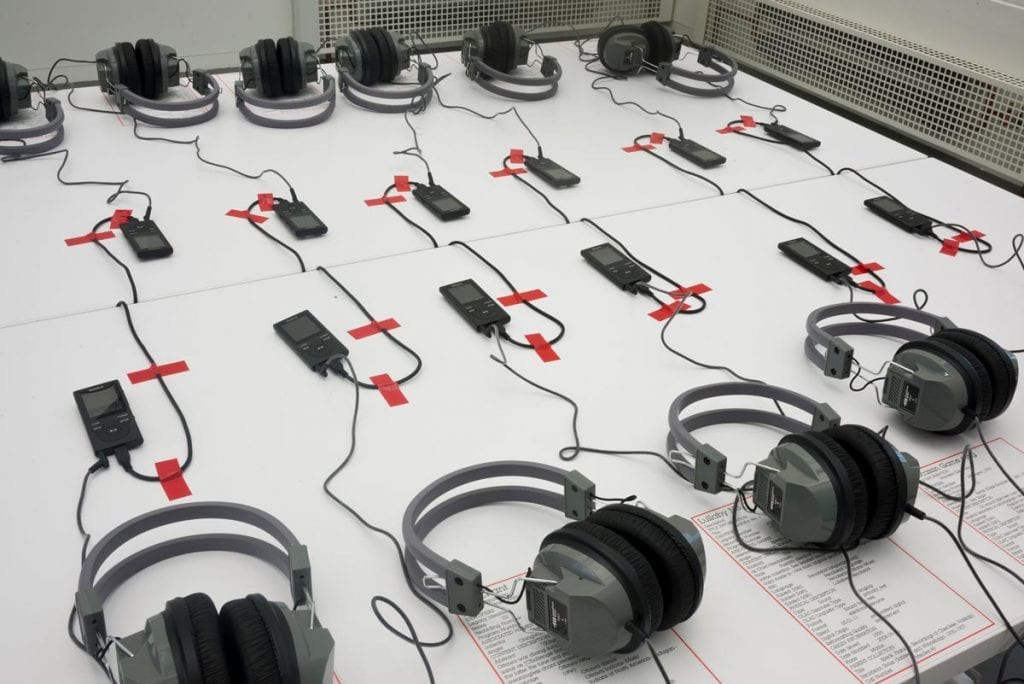
Sounding the Archive, Sensory Lab is part of this fall’s Philadelphia Area Creative Collaboratives (PACC) project Sounding the Archive. Sensory Lab is free and open to the public weekdays from 9am-5pm.
Sensory Lab will evolve over a three-week period. Its first week features a curated playlist by Thomas Devaney, professor of the Haverford course “In the American Strain: Music in Writing 1855-1975“. The playlist contains audio files from several Native American tribes: chants, ceremonial songs, and occasional rites and rituals.
During the second week, a selection of images will be added to the space, also from the Lindsay Reckson, professor of the Haverford course “Realism, Race, and Photography“. They will address ethnographic efforts to map, document, and visualize indigenous peoples, as well as efforts to “look back” at the process of ethnographic viewing.
Photo Credit: Stephanie Bursese
American Philosophical Society Archive Tour w/ Realism, Race, and Photography and In the American Strain Students
Site Visit
11.17
9:30am-12pm, American Philosophical Society, 104 S 5th St, Philadelphia, PA
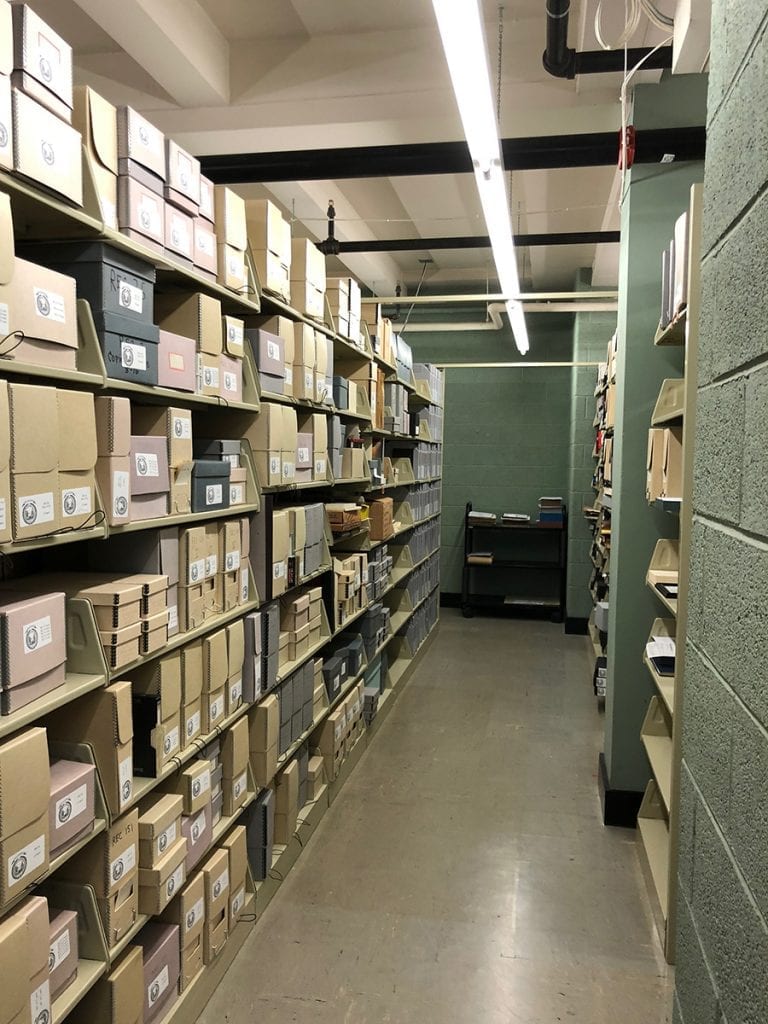
On Friday, November 17th, 40+ students from Professor Lindsay Reckson‘s course “Realism, Race, and Photography” and Professor Thomas Devaney‘s course “In the American Strain: Music and Writing 1855 – 1975” did a site visit at the American Philosophical Society archive with Brian Carpenter; Curator of Native American Materials at the Center for Native American and Indigenous Research.
Photo Credit: History for the Public Blog
